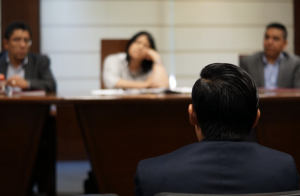Don’t Become “The Man Most Hated by the US Patent Office”
LOS ANGELES, CALIFORNIA, UNITED STATES, June 10, 2022 /EINPresswire.com/ -- In the 1990s, a man named Gilbert Hyatt filed hundreds of patents. And the crazy part is that many of them are still pending in 2022. How can this be? Below are several important considerations based on
Hyatt’s own efforts to expedite his patent claims.“It will be interesting to see how this settles out,” said Sean Lynch, partner at Lynch LLP. “What appears to be bullying by the USPTO when it comes to Hyatt is something we work tirelessly to prevent for our clients.”
When it comes to applications in general, only a few applications filed before the June 1995 patent term transformation (GATT) are still pending. Of those, 99 percent list Hyatt as an inventor. Gilbert Hyatt does not give up easily, and he is known for his tenacity, but those traits alone don’t explain this kind of delay. In a recent petition for writ of certiorari (a petition for Supreme Court review of a case), Hyatt alleged the USPTO is largely to blame for the absurd delays.
In the cert petition, Hyatt attempted to paint a picture of a USPTO that was, quite literally, out to get him, and he brought some receipts. According to Civil Action No. 1:18-cv-546, Hyatt alleged a “no-patent-for-Hyatt” policy existed at the USPTO, and he provided testimony from former USPTO officials. The policy, he asserted, amounted to “a secret agency policy to block issuance of his applications as patents, regardless of the merits of his patent claims.” Accordingly, the USPTO created a “Hyatt Unit” of examiners who called Hyatt a “submariner” and tracked Hyatt applications using software they called the “submarine detector.”
Leading into the cert petition, Hyatt filed a lawsuit in 2018 under the Administrative Procedure Act (APA). In the lawsuit, he sought an order requiring “bona fide examination of his applications.” The lawsuit sought review under both Section 706(1) and 706(2):
The reviewing court shall—
(1) compel agency action unlawfully withheld or unreasonably delayed; and
(2) hold unlawful and set aside agency action, findings, and conclusions found to be (A) arbitrary, capricious, an abuse of discretion, or otherwise not in accordance with law; . . .
The district court based its decision on facts in the administrative record and it failed to follow an ordinary summary judgment approach of drawing every reasonable inference in favor of Respondents. In addition, the district court concluded that summary judgment was proper because Hyatt could not satisfy the extraordinary “mandamus standard” that the court concluded was required to prove a Section 706(1) or (2) case.
In the cert petition, Hyatt asks two questions:
- Whether the ordinary summary judgment standard of Rule 56 applies to review of agency action, as held by the First, Fifth, Ninth, and District of Columbia Circuits.
- Whether the mandamus standard of Norton v. S. Utah Wilderness Alliance, 542 U.S. 55 (2004), applies to claims seeking to set aside agency action under 5 U.S.C. § 706(2).
About Lynch LLP
------------
Lynch LLP helps clients large and small protect their inventions across a wide range of practice areas. We have specialized expertise in a wide range of technical fields and focus our practice on providing strategic guidance and services including patent prosecution as well as strategic patent counseling. We also have experience with clearance searching, prior art searching, product licensing, as well as litigation and enforcement of patent and other intellectual property rights.
Patent attorneys at Lynch LLP have focused technical backgrounds that give us the breadth of scientific knowledge to write patent applications that not only capture a new and novel invention, but that also create an umbrella of coverage extending beyond the exact confines of the invention. We combine our experience as patent attorneys with our experience with patent litigation to prepare and file patent applications of all types that are created to withstand scrutiny and to maximize enforceability. Our expertise extends into negotiating and drafting licensing agreements.
We have experience representing plaintiffs and defendants in a wide variety of proceedings before courts and the USPTO, crafting patent strategies that complement and further our clients’ business interests.
We have experience filing utility patents and design patents to protect all aspects of your invention. Visit Lynch LLP at www.lynchllp.com to set up a free consultation.




No comments:
Post a Comment